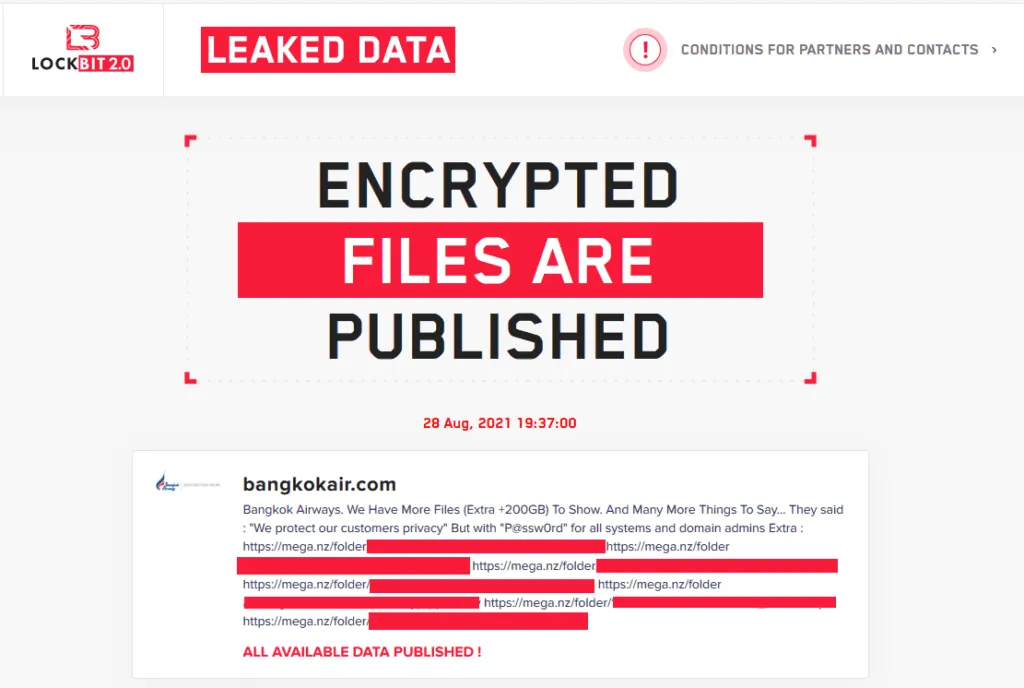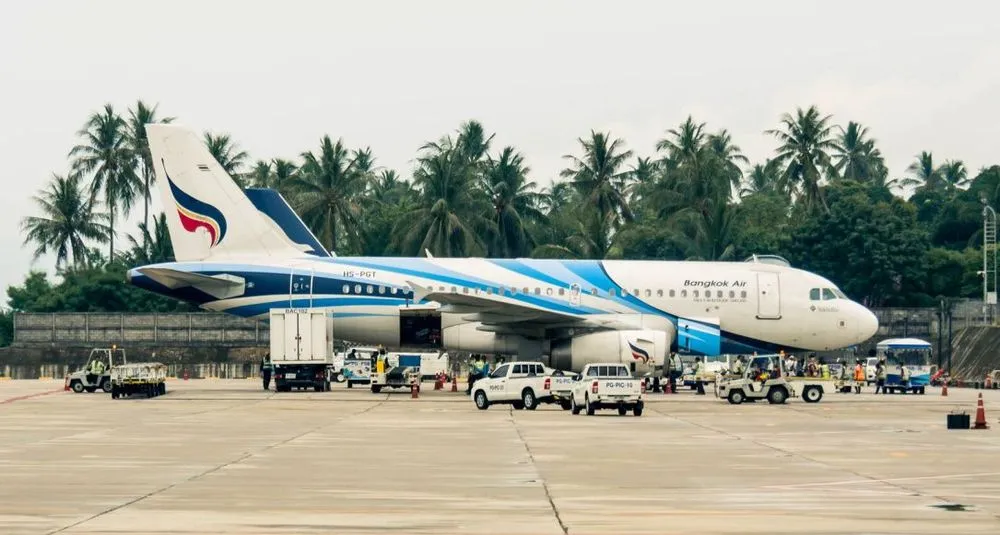Bangkok Air confirms passenger PII leak after ransomware attack
Bangkok Airways, the second oldest and the third biggest airline company in Thailand, has admitted last week that hackers stole passenger information during a security breach following a ransomware attack.
The airline confirmed the breach in a press release last Thursday, a day after a ransomware gang known as LockBit posted a message on its dark web portal threatening the company to leak data if it didn't pay a hefty ransom demand.
The LockBit gang gave the airline five days to pay the ransom but published the entire 200+ GB of stolen data on Saturday after it became clear that Bangkok Air was not interested in negotiations and decided to disclose the breach on its own terms.

While most of the stolen information appears to be business-related documents, the Thai airline said the hackers also managed to steal files that contained personally identifiable data for some of its passengers.
The airline cited an ongoing investigation and couldn't say how many passengers were impacted.
Per the airline, some of the personal data that may have been included in the stolen files included data fields such as passenger name, family name, nationality, gender, phone number, email, address, contact information, passport information, historical travel information, partial credit card information, and special meal information.
Bangkok Airways said it notified local law enforcement of the breach and is now warning customers that some of the stolen data might be weaponized against them through unsolicited calls or emails.
The airline said the attackers might even try to pass as its employee and contact passengers to inquire or request about financial or card-related data.
"The company (Bangkok Airways) will not be contacting any customers asking for credit card details and any such requests," the airline warned. "In case of such event occurs, passengers should take legal actions."
LockBit, the ransomware gang behind the Bangkok Air intrusion, is one of today's busiest ransomware operations after rival gangs such as REvil, DarkSide, and Avaddon called it quits this summer.
Earlier this month, the Australian Cyber Security Centre warned about an increase of attacks from this gang targeting Australian companies. Security firms like Palo Alto Networks, Trend Micro, and Symantec also published reports on this gang after seeing a surge in activity from its operators.
Catalin Cimpanu
is a cybersecurity reporter who previously worked at ZDNet and Bleeping Computer, where he became a well-known name in the industry for his constant scoops on new vulnerabilities, cyberattacks, and law enforcement actions against hackers.



